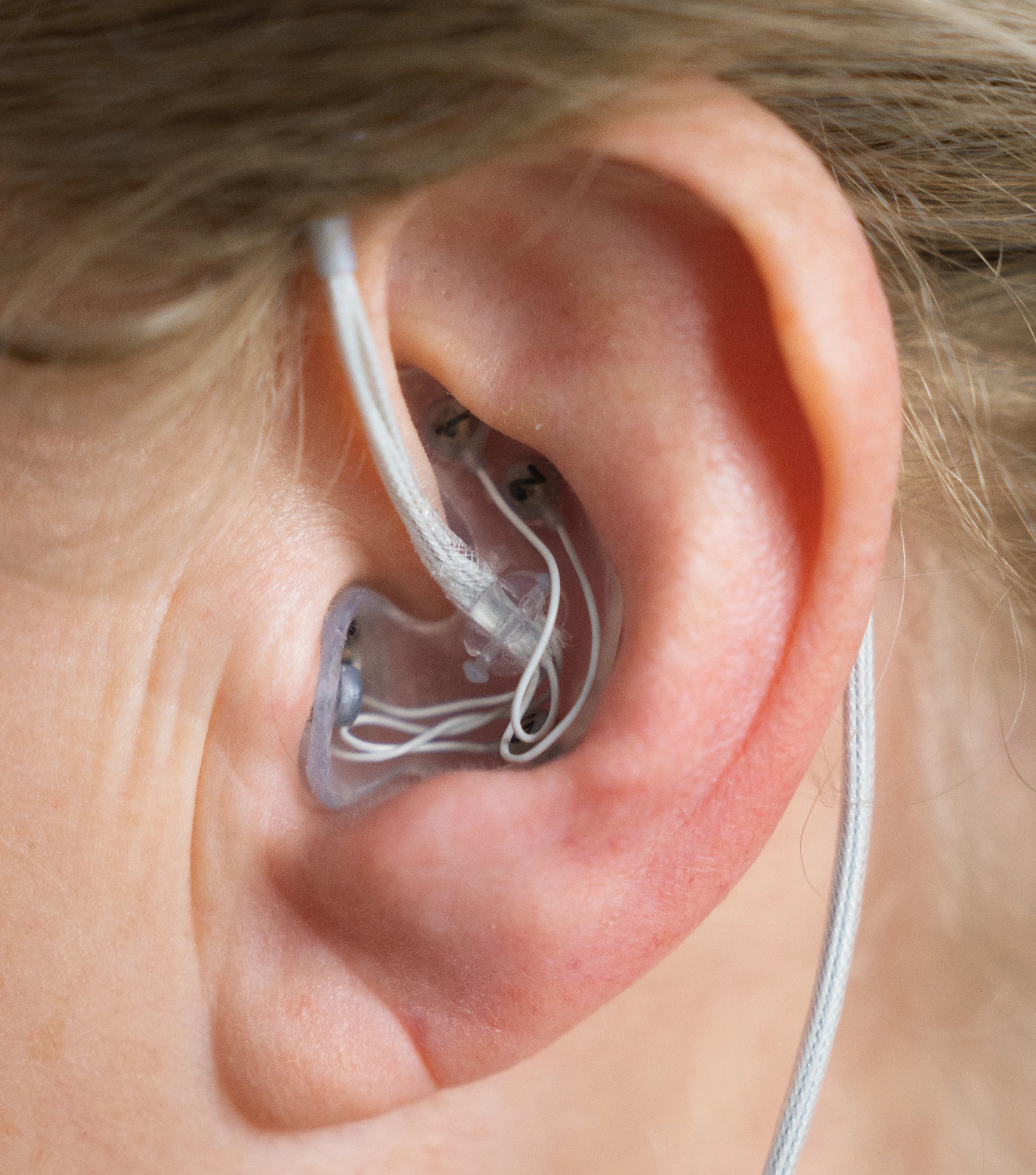It is believed that long before Alzheimer's or Parkinson's diseases present more obvious symptoms, the disorders may be noticeable in subtle changes to a person's sleep patterns. A new project aims to see if such telltale changes could be detected by a small earbud-like device, allowing action to be taken much sooner.
The four-year PANDA (Progression Assessment in Neurodegenerative Disorders of Aging) project is a collaboration between Denmark's Aarhus University, Rigshospitalet University, and health tech company T&W Engineering. It's centered around an experimental device known as the ear-EEG (electroencephalogram).
Although the Aarhus-designed wearable looks much like a standard earbud, it actually monitors electrical activity in the brain by measuring minuscule voltage changes on the surface of the skin within the ear canal.
It's also equipped with an oximeter for measuring blood oxygen levels, a thermometer for measuring body temperature, and a microphone for monitoring heart rate and respiration.

Unlike existing sleep-monitoring systems, which typically require people to sleep a few nights in a clinic while hard-wired to numerous electrodes, the ear-EEG could be used over longer periods in people's own homes. Additionally, because it's much less obstructive than traditional setups, it should give a better indication of its wearer's natural, normal sleep patterns.
Plans call for the device to be tested on groups of volunteers both with and without Alzheimer's and Parkinson's, to see if consistently detectable patterns emerge in the sleep patterns of those groups. Should the study be successful, it is hoped that people who are at risk of the diseases could eventually use an ear-EEG to monitor their sleep patterns for several days or weeks on an annual basis.
"Alzheimer's and Parkinson's are diseases that creep up over many years," said Aarhus University's Prof. Preben Kidmose. "Diagnosis is generally so late that the only treatment option is to treat the symptoms. In the project, we’re going to try to identify signs of the two diseases 10 to 15 years before the first problems begin to occur, and if we can, far better treatment options will be possible."
Source: Aarhus University via EurekAlert





